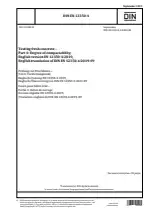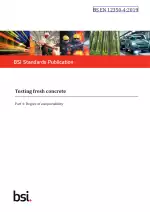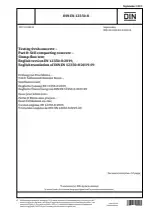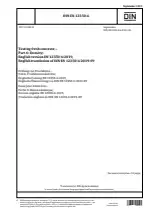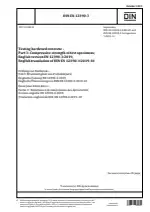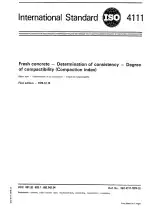Testing fresh concrete - Part 4: Degree of compactability
Also Known As:
The DIN EN 12350-4 standard is focused on testing the fresh concrete to determine its degree of compactability. It provides a method for evaluating the consistence of the concrete by measuring its ability to be compacted. The test is applicable to concrete specimens with a maximum coarse aggregate size of 63 mm.
The standard specifies that the degree of compactability should fall between the values of 1.04 and 1.46. If the degree of compactability is lower or higher than these limits, the concrete's consistence is deemed unsuitable for this particular test. This indicates that the concrete may not have the desired properties for proper compaction and can affect its overall performance.
By setting these parameters for the degree of compactability, the standard helps to establish a standardized method for assessing the workability of fresh concrete. This allows for consistent and reliable testing, ensuring that the concrete meets the required specifications for its intended use.
| Descriptors | Compacting, Compactness, Concretes, Consistency, Consistency (mechanical property), Construction, Construction materials, Fresh concrete, Measurement, Measuring techniques, Mechanical testing, Sampling methods, Test equipment, Testing |
| ICS Codes | 91.100.30 - Concrete and concrete products |
| Language(s) | English |
| File Size | 143.4 KB |

